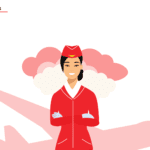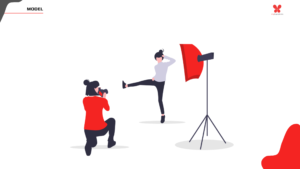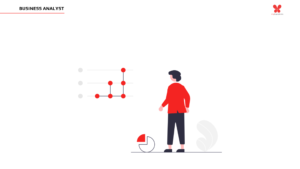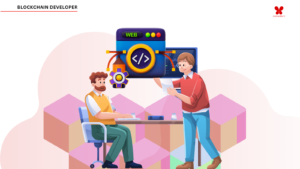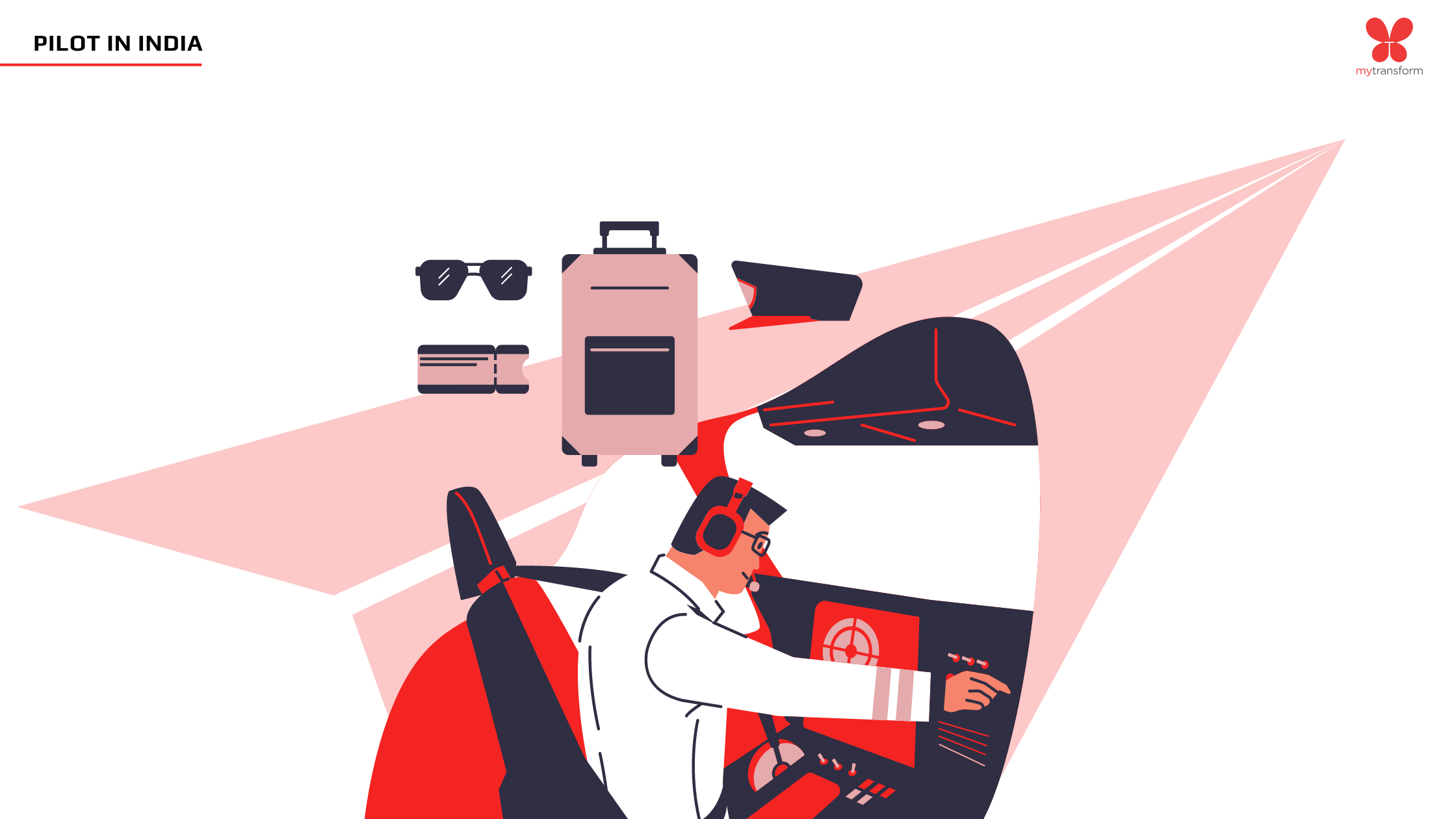
Every single one of you, without a doubt, has felt the thrill of flying at some point in your life. Surely you can’t put words to this emotion.
When thinking about what it takes to become a highly proficient Pilot, have you ever thought about what qualities a candidate must possess?
Follow this article to learn everything you need to know about becoming a Pilot in India.
Who is a Pilot?
In simple words, a Pilot is a professional who is trained to fly an airplane. Professional Pilots operate planes, helicopters, and other types of aircraft.
There are different types of Pilots, including airline Pilots, who work for individual companies to transport people and goods on a specific schedule.
Companies hire commercial Pilots that provide charter flights to carry out rescue operations or do aerial photography.
Modern airplanes are flown by a cockpit crew, co-Pilot, or first officer. Their responsibilities include Piloting the aircraft, communicating with air traffic controllers, and operating surveillance equipment.
What qualifications do you need to be a Pilot?
In order to apply to Indian Air Force, make sure:
- Your minimum age is 18 years.
- The minimum qualification is SSC or HSC.
- You possess Excellent English language skills.
- You adhere to appropriate physical and mental fitness standards as defined by the Indian Air Force.
- You pass entrance exams to qualify for basic airman training with the Indian Air Force.
- You need to appear in the NDA exam after class 12th or the CDS or AFCAT exams after completing your graduation.
- To be a commercial Pilot, you must apply for a Commercial Pilot License (CPL).
In order to apply to Private Institutions:
- Your minimum age is 18 years.
- The minimum qualification is SSC or HSC
- You possess Excellent English language skills
- You have to have a level-2 medical and mental fitness certificate
- You get to clear a basic entrance exam at some private flying schools.
- To become a Private Pilot, you must hold a Private Pilot license (PPL).
Eligibility Criteria to become a Pilot
The eligibility criteria to become a Pilot are:
- Your minimum age is 18 years.
- The minimum qualification is SSC or HSC
- The main requirement for becoming a Pilot after 12th is to have completed 10+2 in Science, but several Pilot training academies also accept commerce students.
- You must have scored 50% in 10+2 (This may vary from institution to institution)
- You must have studied Math, Physics, Chemistry, and English at the intermediate level.
- If you are not a Science student, you can take the required subjects through the National Institute of Open Schooling or as a private candidate through the respective state board.
Types of Pilot careers in India
| Types | Job Profiles | Average Annual Salary (INR) |
| Commercial Pilots | Pilots fly passenger and cargo planes commercially. A commercial Pilot must be time-savvy. They handle airlines’ commercial needs. | 13.60 L |
| Cargo Pilots | A cargo Pilot flies commercial planes transporting private courier supplies. Advanced technology helps cargo Pilots follow loading and unloading operations. | 9.45 L |
| Military Pilots | India’s Air Force has Pilots. They’re trained to fly jets in times of war and foreign threat. They are involved in air-to-air and air-to-ground combat. | 10.80 L |
| Charter Pilots | Charter Pilots fly private or business planes. They’re customer-focused. They coordinate ground transport, food, and other customer demands.. | 13.21 L |
| Firefighter Pilots | Firefighter or air tanker Pilots pour water, fire retardants, or fire suppressants on wildfires. | 9.87 L |
| Flight Instructor Pilots | Flight instructors teach aspiring Pilots how to fly safely. They teach basic flight rules, aircraft operation, landings, cockpit instruments, takeoff, etc. | 8.42 L |
| Test Pilots | A test Pilot evaluates freshly constructed and modified aircraft to assess their safety. | 7.56 L |
| Helicopter Pilot | A Helicopter Pilot is a skilled professional with a DGCA-approved license to fly in India (DGCA). They inspect aircraft control systems, fuel, and other items. | 11.03 L |
Step-by-Step Process to become a Pilot
Learn the following steps thoroughly to become a Pilot:
Step 1: QUALIFICATION
A Bachelor’s degree in any subject is required to become an airline Pilot, whereas a high school diploma or equivalent is usually required for a commercial Pilot. Some flight schools are part of 2-4 year colleges/universities that offer the desired aviation or aeronautics degree and are FAA-approved (FAA).
If you apply after your 12th: Enroll in a Commercial Pilot Training [CPL] program.
You will be required to pass an entrance exam, an interview, and a medical test as determined by the institute. The cost of Pilot Training courses after the 12th grade ranges from ₹15 Lakhs to ₹20 Lakhs. It may vary if you plan to study abroad.
Via NDA: Those in India with aspirations of becoming Pilots after completing the 12th class should take advantage of the NDA (National Defense Academy) examination. After the three-year program is over, you’ll need to take flight training. After that, you’ll become a permanent commission officer.
Other Important Information on How to Become a Pilot After 12th Grade:
- It is necessary to pass the DGCA class 2 medical.
- Enroll in an aviation school.
- At least 200 hours of flight time
- Pass the exams
- Obtain the CPL certificate.
Step 2: GET AN EXPERIENCE
If you want to be a Pilot, you must complete a certain number of flight training hours in order to obtain a license. The number of training hours required is determined by the type of Pilot program desired.
Step 3: EARN A PILOT DRIVING LICENSE
First, you have to gain the required number of flight hours, which is followed by a written assessment demonstrating your flying abilities and passing the physical test.
Step 4: CLEAR ADDITIONAL TRAINING AND TESTS
Many airlines require Pilots to pass aptitude and psychological tests as a condition of employment. Once assigned, Pilots must complete additional weeks of training and flight time to become comfortable as co-Pilots.
If you want to join a major airline in the future, it is always helpful to have worked for a regional airline first.
Step 5: PROMOTION
The promotion from Pilot to captain is entirely dependent on seniority and experience.
To obtain additional flight ratings, you must pass additional FAA has written and practical exams. You can continue to learn and investigate industry changes.
The Aircraft Owners and Pilots Association (AOPA) and the International Federation of Airline Pilots Associations (IFALPA) provide enriching seminars and webcasts for mastery and growth.
Top Colleges to become a Pilot
Here are the top colleges to become a Pilot and their fees structure-
| Institute | Fees Structure |
| Indira Gandhi Rashtriya Uran Akademi (IGRUA) | 45L – Full CPL |
| Madhya Pradesh Flying Club (MPFC) | 8.5L – Per Year |
| National Flying Training Institute (NFTI) | 34.6L – Full CPL |
| Ahmedabad Aviation & Aeronautics Ltd. (AAA) | 24.6L – Full CPL |
| Bombay Flying Club | 41L – Full CPL |
Salary of Pilot in India
- Indian Air Force:
Pilots in the Indian Air Force are paid salaries that are in line with those set by the Defense Ministry and the Indian Armed Forces’ wage boards.
They change based on one’s position and are not related to the type of plane operated.
- Private Pilots:
Helicopter and small aircraft Pilots fall under this category. It doesn’t matter if they are employed by companies or private persons.
These Pilots earn roughly ₹1,00,000 per month.
- Commercial Airlines:
Pilots flying both passengers and cargo receive the same pay.
First Officers on Indian commercial airlines can expect to make anywhere from ₹80,000 to ₹1,50,000.
The average salary for a flight commander is above ₹3,50,000.
What are the Benefits of being a Pilot?
The benefits of being a Pilot are:
- Salary Benefits
Aviation is a great profession that allows for personal and professional development. Pilots earn competitive salaries and have the opportunity to advance their careers in the cockpit or in aviation management.
- Flexible Working Hours
You do not need to restrict yourself within the conventional 9-5 hours. Being a Pilot has always had a significant advantage in terms of flexibility.
- Work doesn’t follow you Home
Once you become a Pilot, you will leave your work on the plane. When you finish your day and close the plane door, you have nothing to take home with you.
- Career in Order
A rewarding profession is one of the key advantages of being a Pilot.
From your first solo flight to your first landing to flying to a new destination and conquering problems, every day as a Pilot in the aircraft is gratifying.
- Travel like no one
With all the different routes Pilots take, every day at work means taking off in one country and landing in another, which might be a country you haven’t been to yet.
Depending on your schedule, you might end up staying overnight or longer. This gives you the chance to see new places and learn about different cultures.
- Travel Discounts
If you are an airline Pilot, you may be able to get discounted or even free plane tickets for your family and friends. This could save you a lot of money on great trips.
- Meet Varied People
As a Pilot, you’ll get to work with many different people on the flight crew. On each flight, you’ll also be able to meet new people. As you go to different cities, you’ll be able to meet new people who live there. This can help you make new friends as you move up the career ladder.
- Ability to fight challenges
With each new day, you will face varied issues like a delayed flight, malfunctioning of certain equipment, solving crew members’ issues, and many more. These will keep things exciting and encourage you to become a better Pilot.
What are the disadvantages of being a Pilot?
The disadvantages of being a Pilot are as follows:
- Long-distance flights can be exhausting
When you have to spend a significant amount of time in the air, it can be detrimental to your physical and mental health.
- Volatile Schedule
You cannot have an organized timetable for your life due to different flight schedules. You must always make plans based on changing schedules.
Sometimes, your plans may even be canceled at times.
- Pilots are mostly away from home
Long-haul Pilots spend more time away from home, but they get 10 to 15 days off per month to return home.
- Pilots may suffer from health disorders
Military Pilots who witness battles may suffer from emotional disorders and other ailments. For commercial Pilots, prolonged flights often lead to fatigue and exhaustion.
- Expensive career choice
If you have read the fee structure of the aviation courses in the above section of the article, you might be well acquainted with the fact that pursuing a career in the aviation industry is costly.
- Working on Holidays
There are high chances that you have to work during holidays because a lot of flights operate during holidays.
- Possibility of Air Crashes
A Pilot’s training and profession are highly risky. The most common of these is aircraft mechanical failure or instrument failure.
- The constant fear of Hijackings and Terror Attacks
The ever-increasing possibility of terrorist attacks around the world has made the job of a Pilot more frightening.
FAQs
How long will it take to become a Pilot?
It ideally shouldn’t take more than 3 to 4 years to become a Pilot. This is the duration it takes to get a Bachelor of Science in Professional Flight.
How much do Pilots get paid?
- Commercial Pilots – 13.60 LPA
- Cargo Pilots – 9.45 LPA
- Military Pilots – 10.80 LPA
- Charter Pilots – 13.21 LPA
- Firefighter Pilots – 9.87 LPA
- Flight Instructor Pilots – 8.42 LPA
- Test Pilots – 7.56 LPA
- Helicopter Pilot – 11.03 LPA
Is it hard to become a Pilot?
Becoming a Pilot is just like any other job. We can all agree that no profession is easy or difficult, but flying is not for everyone.
There are clearly defined guidelines that must be followed. Becoming a Pilot is just like any other profession.
Is Pilot a stressful job?
Sometimes, it can be stressful because: being a Pilot can be mentally challenging, Pilots have to work on holidays, and Pilots have to work during the night.
How much does a Pilot study cost?
| Indira Gandhi Rashtriya Uran Akademi (IGRUA) | 45L – Full CPL |
| Madhya Pradesh Flying Club (MPFC) | 8.5L – Per Year |
| National Flying Training Institute (NFTI) | 34.6L – Full CPL |
| Ahmedabad Aviation & Aeronautics Ltd. (AAA) | 24.6L – Full CPL |
| Bombay Flying Club | 41L – Full CPL |
Which study is best for the Pilot?
A bachelor’s degree in aviation is the most common type of higher education to pursue if you want to be a Pilot.
How many flights does a Pilot do a day?
The number of flights Pilots fly in a day is largely determined by the nature of those flights, specifically whether they are short-haul or long-haul.
How many hours can a Pilot fly?
Flight times within duty periods are limited to a maximum of 8 hours for single-pilot flight crews and 10 hours for two-Pilot flight crews.
Is becoming a Pilot worth it?
A career as a commercial Pilot is an outstanding choice. You get to fly around in the sky, work in other countries, and meet a lot of interesting people wherever you land. However, every job has its pros and cons.
Do you need a degree to be a Pilot?
A bachelor’s degree in any field is needed to be an airline Pilot, but a high school diploma or equivalent is usually enough to be a commercial Pilot.
Is there an age limit to be a Pilot?
The minimum age limit is 17 years, and the maximum age limit is 60 to 65 years.
What is the last age to become a Pilot?
The last age to become a Pilot is 65 years.
Can you be a Pilot with glasses?
Yes, you can wear glasses and fly an airplane!
